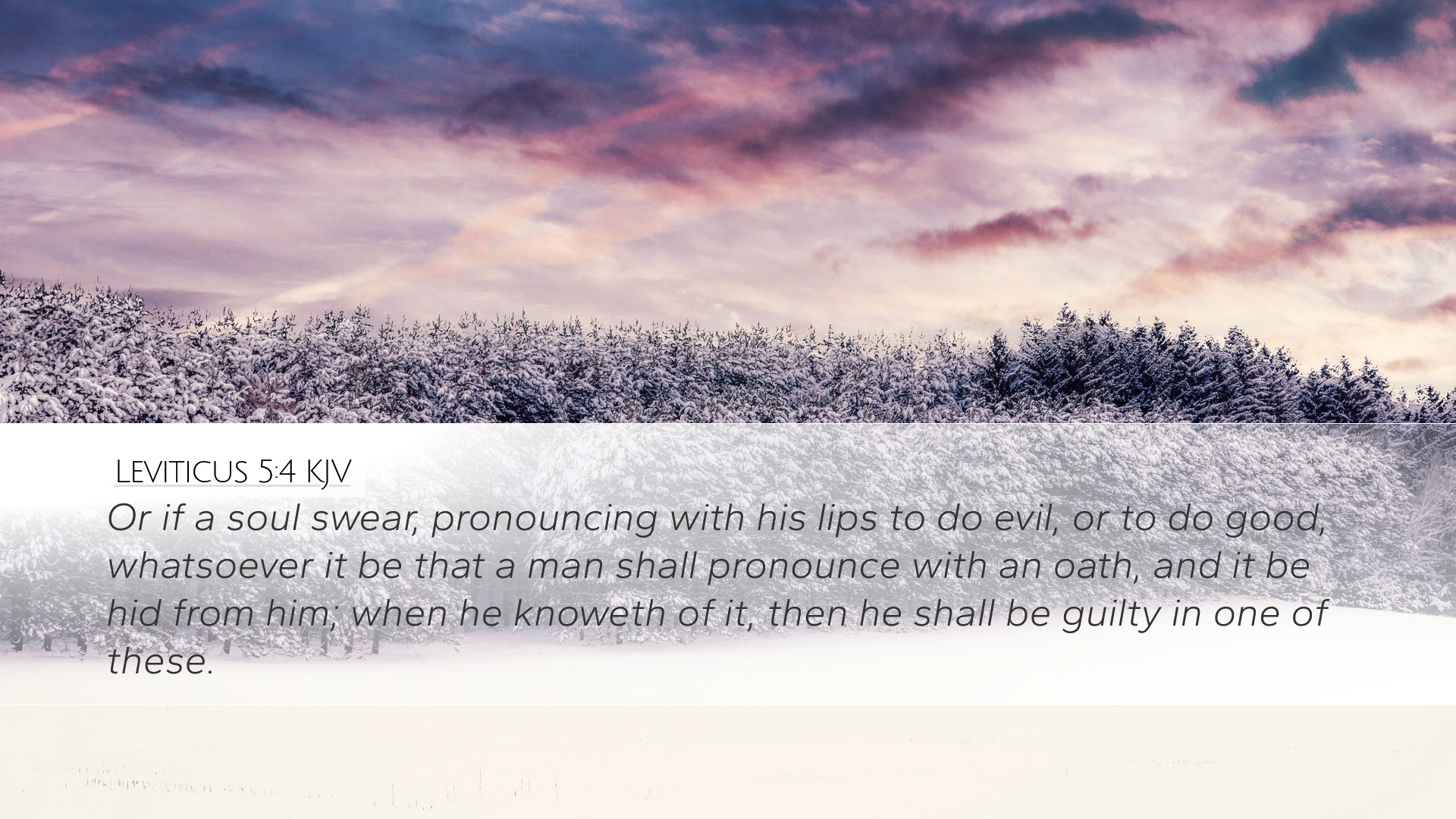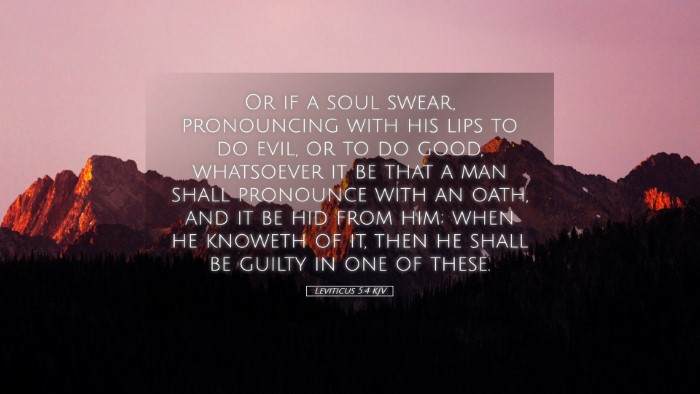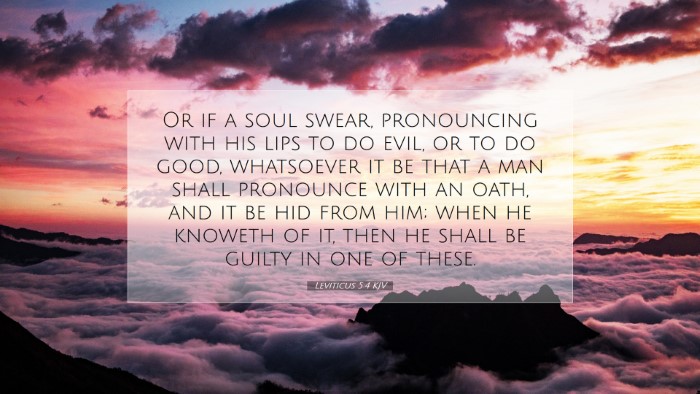Commentary on Leviticus 5:4
Verse Insight: Leviticus 5:4 states:
“Or if when he is aware of it he utters an oath, and it be to do evil, or to do good, whatever it be that a man shall pronounce with an oath, and it be hid from him; when he knoweth of it, then he shall be guilty in one of these.”
Summary of Key Themes
This verse addresses the weight of oaths and vows within the community of Israel, emphasizing the responsibility individuals bear for their spoken words, even when they are made in ignorance. The legal framework established in Leviticus serves not only to outline societal norms but also to guide the spiritual accountability of its people before God.
The Nature of Oaths
Matthew Henry’s Commentary: Henry reflects on the seriousness of invoking an oath, recognizing it as a solemn act with profound implications. He posits that oaths should never be taken lightly, for they invoke the name of God and carry an inherent expectation of truthfulness and fulfillment.
Albert Barnes’ Commentary: Barnes notes that the context implies that even unconscious breaches of an oath are significant in God's sight. The acknowledgment of guilt upon becoming aware of such a violation calls believers to a deeper understanding of integrity and accountability in their declarations.
Adam Clarke’s Commentary: Clarke highlights the importance of maintaining integrity when making any commitment, asserting that the nature of the promise—whether to do good or evil—remains critical. He elaborates on the spiritual ramifications of failure to uphold one’s word, underlining that every vow carries both immediate and eternal consequences.
Spiritual Implications
- Accountability to God: This scripture underscores the idea that individuals are accountable to God for their speech. Even unintentional violations of oaths signify a need for confession and restitution.
- Awareness of Duty: Leviticus 5:4 serves as a reminder that ignorance of the law does not absolve one from moral responsibility, prompting individuals to be vigilant in their commitments.
- Community Impact: The societal aspect of vows suggests that one’s failure impacts not only the individual but also the community, revealing a relational dimension to individual conduct.
Theological Reflections
This verse encourages an exploration of God’s holiness and justice. The gravity associated with oaths reflects God's character, prompting believers to reflect on the purity of their intentions and the implications of their words. It challenges theological principles of sin and atonement, emphasizing that repentance involves both acknowledgment of wrongdoing and a desire to rectify it before God and others.
Lived Faith
For pastors and church leaders, teaching Leviticus 5:4 offers an opportunity to delve into the practicalities of Christian living. This verse can prompt discussions about the seriousness of commitments made in church activities, vows taken during marriage, and the personal integrity that should characterize a believer’s life. It encourages congregations to cultivate an awareness of the implications of their speech and the importance of standing by one’s word.
Application for Today
- Integrity in Speech: Emphasizing that Christians are called to reflect God's character, especially in how they communicate and commit.
- Education on Oaths: Teaching church members about the weight of words can inspire a culture of accountability and integrity.
- Encouragement for Repentance: Providing pathways for individuals who have broken oaths to seek reconciliation, both with God and with those affected.
Conclusion
Leviticus 5:4 invites believers to engage thoughtfully with the spoken word, reminding them of the weightiness of oaths within their faith journey. Insights from public domain commentaries enrich the understanding of this verse, offering timeless lessons on integrity, accountability, and the exercise of our commitments before God and community.


